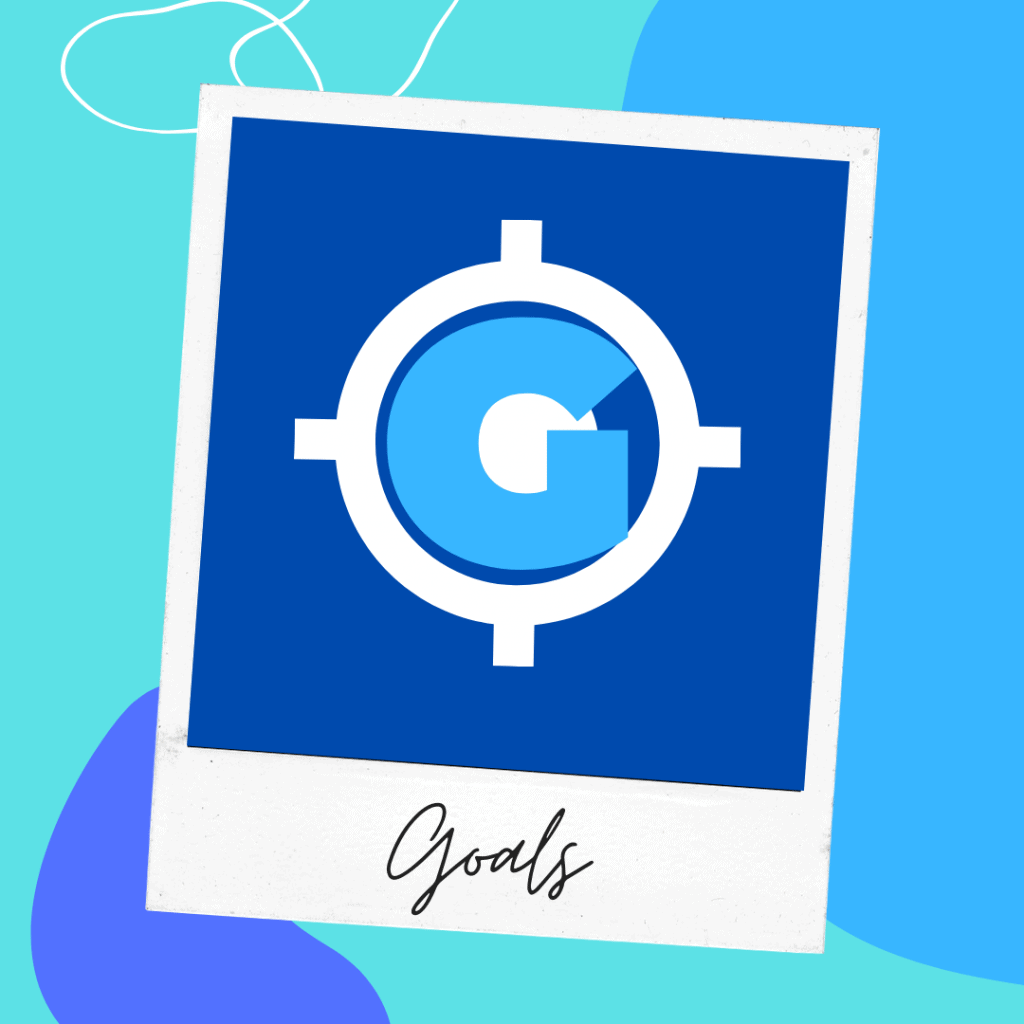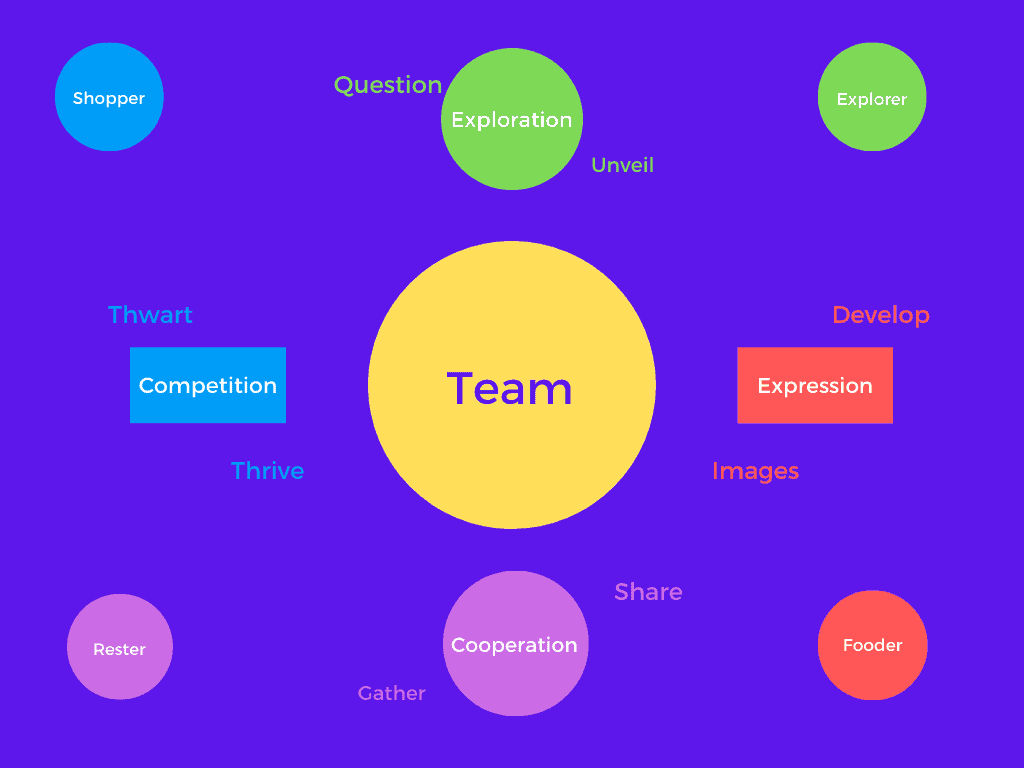
- Travel is fun.
- Travel is fun?
- It should be.
- Is it always the case?
- Can you enjoy your week in Madrid or your 3 days in Berlin at the fullest?
- Can you discover Italian, Swedish or Russian culture in such a short time?
- No, but you can optimize that time to get the most out of your séjour.
- How?
- Gamification.
- Gamification turns Travel into a Real-Life open world Game.
- How do you create games for your team?
Here’s how:
- Bigger Goals
- Status & Progression
- Teams & Collaboration
- Learning through Interaction
- Rewards & Incentives
Bigger Goals

- It’s the easier part of the Journey.
- The simplest, the earnest.
- What do you want to do?
- Because you can do anything.
- Do you want to learn Spanish?
- Do you want to run around the Taiga?
- Do you want to find the best deals in Instanbul?
- Choose your hurdles, better yourself & win.
- Where : At the Beginning.
- Games : What kind of soup would I be?
- Customization :
- Define your symbol, your icon, your motto.
- It doesn’t have to be fancy, a blue square/green triangle/red circle/purple pentagone could do.
- Balance :
- Your Goal will set the difficulty & interest of each game and location you visit..
- Replayability :
- Autonomy is Engagement.
Status & Progression

- A global board would be useful to track everyone’s progress.
- This could be unequally perceived by your team mates.
- That’s the occasion to normalize the expectations & the reactions.
- Additionally, each of your Teammates can make their own character sheet.
- Let them track their Progression through a leveling system or a small graphic.
- Team members increase their level/rank/skills through completing games.
- Let them express their Individuality by designing their own character sheet.
- Through the game ‘If I were a Pizza’ your teammates define their core goal/mission (the Crust), then choose themselves 4 behavior traits & accessories (Topping) for the duration of the game.
- Where : Cafes & Hotels, or anywhere you can sit & write.
- Games : The Final version of myself, Evolution (requires a small insect you’ll keep on yourself), Make your own Sheet, If I were a Pizza.
- Customization :
- Let everyone make a different character sheet.
- Impose no unnecessary standards.
- Balance :
- Everyone should have some sort of advantage over the others in order to justify everyone’s role.
- Start with an easy game and progressively let them get a taste of difficulty & Uneasiness.
- Replayability :
- Give them many progression system that they will want to try.
- For exemple you could give them 1 based on sheer Effort, another on Patience & a last 1 based on Precision or Agility.

Teams & Collaboration

- Team members will be essential to solve problems, complete quests & achieve an objective.
- This will train you to retain, recruit & assign people so that they can play at the top of their game.
- Context & Culture of your team building is the core of the team building experience.
- During a Travels there are 4 main categories of Settings : Shopping districts, Landmarks, Parks & Restaurants.
- Each type of setting will correspond to a different types of Adventurers: The Shopper, The Explorer, The Rester & The Fooder.
- Each team member possessing a keen interest for a specific category of activity will always be able to help the rest of the group if they aren’t too fond of that particular activity.
- These 4 types apply for the Urban travels.
- If you are going through a jungle, a forest, a island, a mountain or even by seas you’ll need other types of adventurer (The survivalist, the trapper, the fisher, the hiker or the sailor).
- Tailor your group to your needs & to your ambitions.
- Where to team-build : Everywhere, especially is parks & wild open spaces.
- Games : A Bet, At the end of the day no one wins, Remember my secret, Find me a Nickname, Find yourself a new name, The Army of Us.
- Customization :
- If you’ve got some graphic skills draw a small portrait for each team mate.
- Finding a name/nickname for the travel will make the journey more memorable.
- Balance :
- When determining each players roles balance Skills & Interests.
- Each player should choose at least 1 activity.
- Replayability :
- If you are a group of 4-6 you can make more than 1 team.
Learning through Interaction

- You can assist your team by offering them Hints, Enigmas & Quizzes through the games.
- Your Team will go through 3 types of Interactions (or activity types) in order to grow.
- The Competition is the common game setting.
- There will be winners & losers.
- This is the traditional setting in term of offensive behaviors such as beat, brag, taunt, challenge, & fight.
- The Cooperation is less common, but maybe more desirable as a 1st shot if you wish to develop group cohesion.
- There may be losers, if some players do not follow the rules.
- The whole team may win.
- Cooperation generally requires to unit the whole team against a common threat.
- Another scenario may be a collect-type quest or a scavenger hunt.
- This is the traditional setting in term of collaborative behaviors such as gather, recover, share, assist, gift, encourage, & trade.
- The Exploration is the last type of interaction.
- The most adapted for an adventure type game, a long quest or campaign.
- It could also be adapted to a mystery/investigation setting.
- It’s nice to play this type of game in an outdoor setting as well, such as a hiking trek, a forest trek, or even an underwater environment.
- This is the traditional setting in term of Seeking behaviors such as Unveil, Questions, Discover, Read, Search, Collect, Complete, Decrypt & curate.
- The Expression is a subset of Exploration games.
- It can be construed as a 4th type of interaction.
- It is a type of mental Exploration and can be exercised through a canvas of some sort.
- The most common type of expression is the physical art expression.
- This is the traditional setting in term of Seeking behaviors such as Decide, Customize, Design, & Transform.
- At this stage your players may want to develop their own games.
- Encourage them to do so.
- They will fail to create balanced or replayable games.
- That’s fine.
- Give them the chance to do something different.
- Not better or worse, just different.
- Where to use it : Landmarks & Museums, can apply to any other place with a little history (10 years or so.)
- Games : Ask the owner, order the Specialties, Trap the tour guide, The Irregular’s Itinerary, Draw the place you are In, Travel Journal.
- Customization :
- If a game is too difficult for now don’t hesitate to delay.
- Balance :
- Let them struggle, and let them know why.
- Replayability :
- Don’t drown them with data.
- Keep some mystery.
- Let them ask for more.
Rewards & Incentives

- Fuels the user’s motivation and keeps engagement high.
- Experience Points, Medals/Badges are common rewards.
- Other rewards could be a simple treat.
- A dinner to wherever they want.
- Maybe they’ll just want a day of rest because they’ll be fed up with your games.
- You can give your team a sense of protection through your ownership, which in return will entice them to show you more of themselves.
- You can help them achieve Personal victory conditions though experiences tailored for them.
- You can develop a progressive system of rewards adapted to the difficulties encountered.
- The Paroxysm of this system is when the task itself become the reward.
- A Game or an Activity could make you happier than resting.
- In order to achieve this state the Game must make you feel fulfilled.
- Assign only meaningful & rewarding tasks during your Games.
- Where : Anywhere they are pleased to play.
- Games : Blissful Productivity.
- Customization :
- Adapt the reward/incentive to your team’s needs & wants.
- Balance :
- Don’t make the game punishing.
- Replayability :
- Make the gaming experience rewarding on its own right.